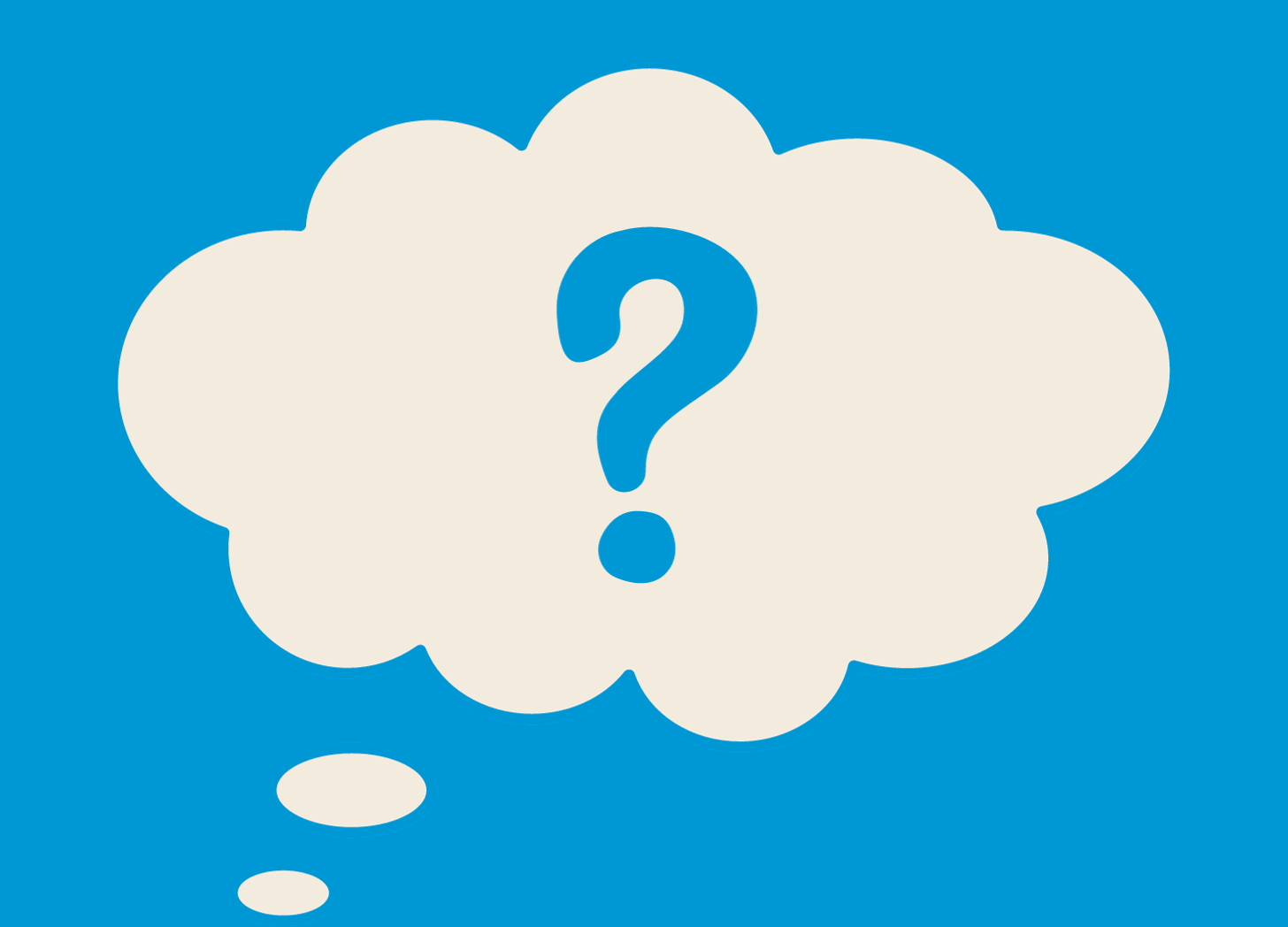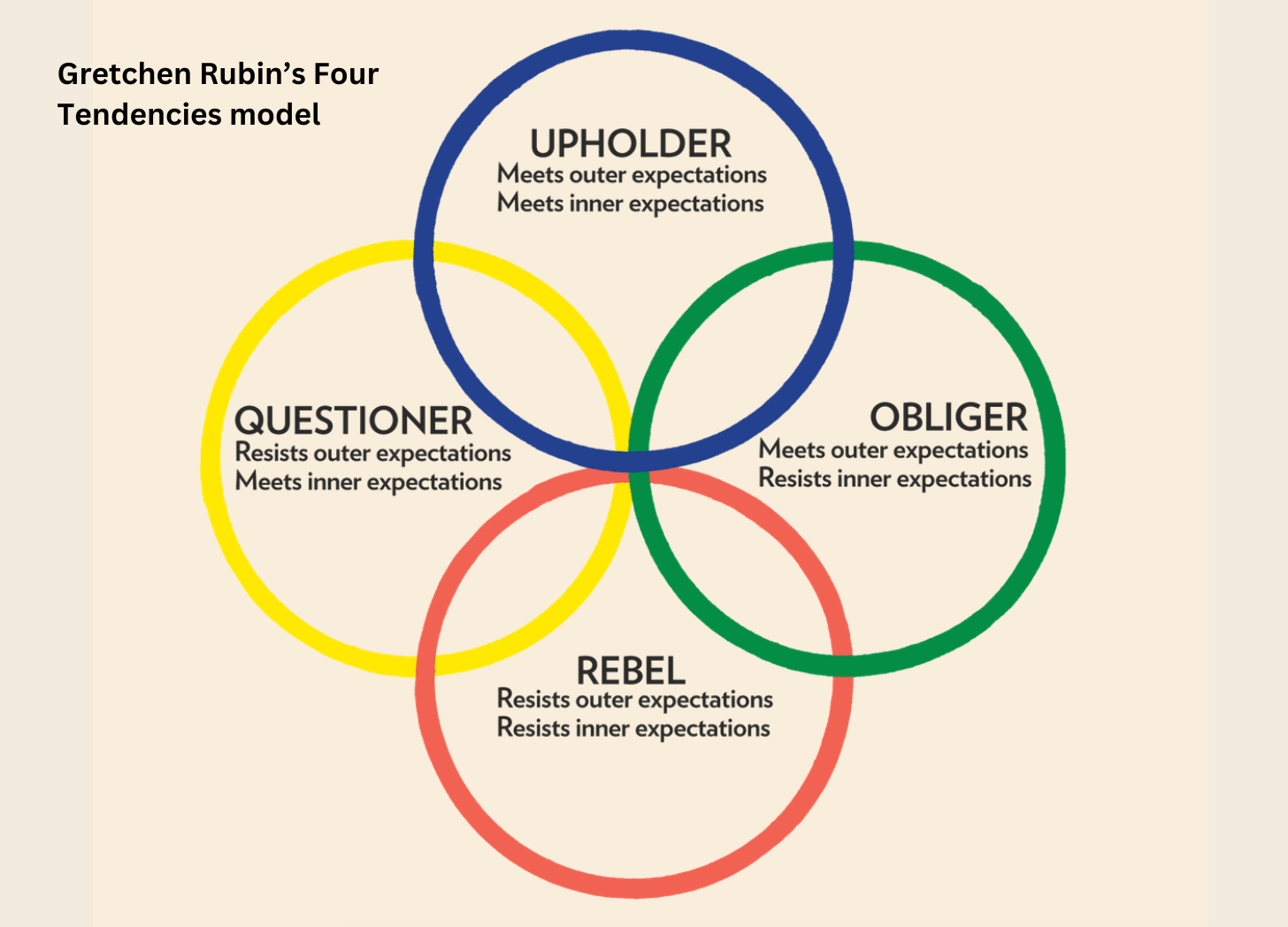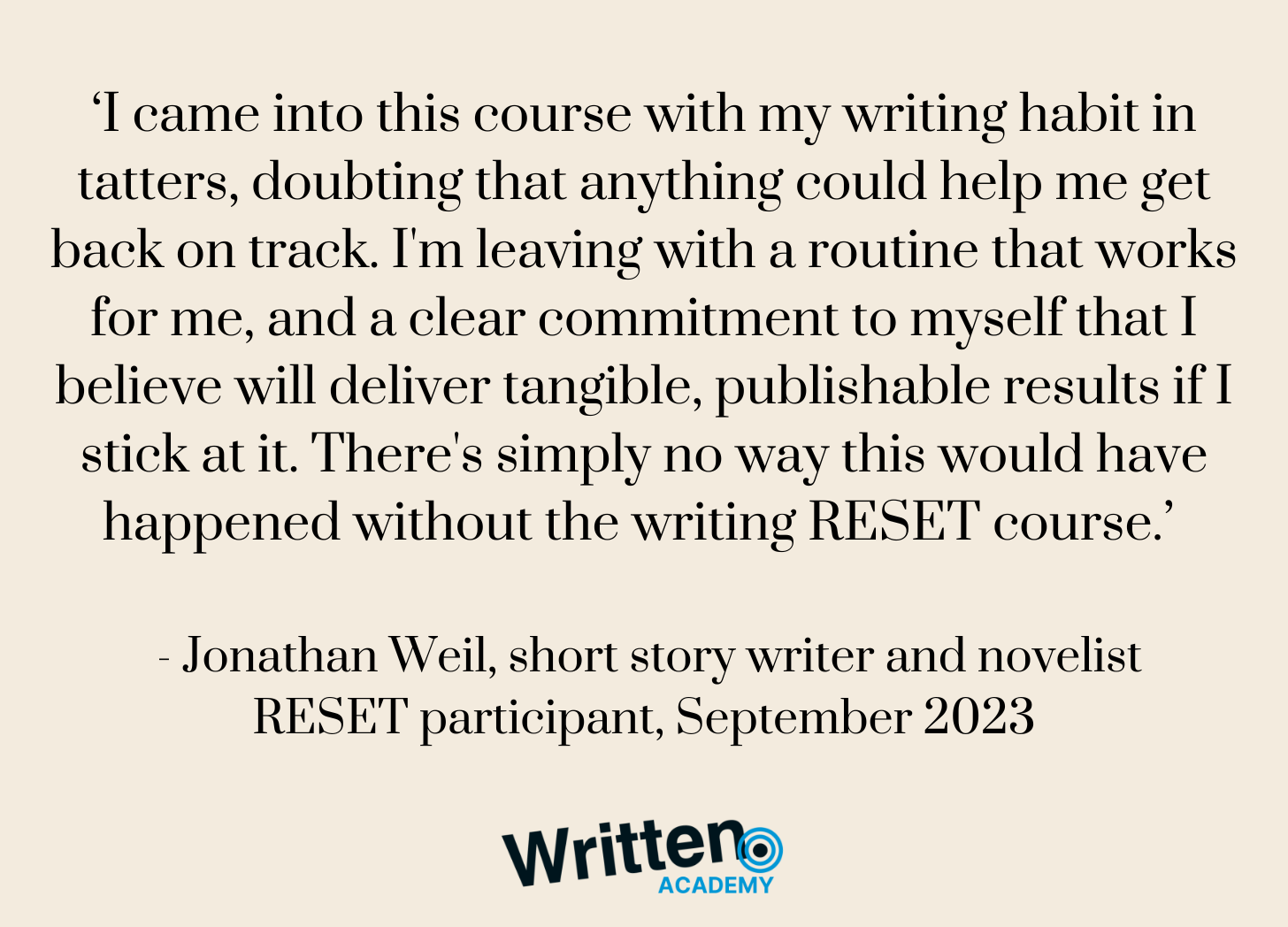Are you a people person?
Chris admits to being a friendless curmudgeon & explains what helps him get the writing done. Find out whether you respond to external or internal expectations & take Gretchen Rubin's quiz.
Hello there writing friend,
Last week Bec talked about how we co-wrote our book. She shared the numerous ways other people helped and supported her to write – accountability groups, beta readers, writing buddies, coffees with friends - and so on.
She also wrote about my rather more solipsistic process. This involves writing on my own in silence and scurrying away to work at the kitchen table every time the friendly pings of Zoom signal that Bec’s about to start another accountability call.
All of which makes me sound a friendless curmudgeon. And that’s true in part. However, I still need people - just not in the way Bec does.
There’s simply no way I could have written the book without her - more of that later on. But unlike Bec, I don’t really need other people setting me deadlines or urging me on – in fact, I react quite badly to these things.
I tend not to feel accountable to other people – but I do feel very accountable to myself. Let me explain.
Quizzes and questioners
I don’t much like quizzes but a while ago, Bec forced me to take one. The quiz was designed by the writer Gretchen Rubin and it was called The Four Tendencies.
Immediately cynical, I questioned why it would help me – but it did. It could help you too but if you’re like me, you’ll need convincing.
At the beginning of her book, Rubin writes about a lunch date with an old college friend. Over coffee, the friend explained that she wanted to get into the habit of running again but was struggling because she could never find any time for herself. She wanted to prioritise running but things kept getting in the way.
The friend didn’t know why she was finding it so difficult. At college, she was an enthusiastic member of a running team - so why was she struggling now? Rubin wondered why too. Partly because she had no difficulty finding time for the things that she wanted to do.
What was it that made Rubin and her friend different? Why do I need people differently than Bec?
Great expectations
Rubin’s idea is that we all respond to expectation in different ways. Some people (like Bec) are more likely to respond to the expectations other people put on us while others (like me), are more likely to respond to the expectations we place on ourselves.
We have different tendencies – none of which are ‘better’ or ‘worse’ but when we understand them it can explain a lot – and be very useful.
I’m what Rubin calls a ‘questioner’ which means I tend to resist doing things unless I understand why I’m doing them and they make sense to me. However, when they do make sense to me I commit to them strongly - perhaps a little too strongly. I don’t need any kind of external influence urging me on. Rewards or praise don’t make any difference to whether I do anything or not.
The downside of being a questioner is that I struggle with people telling me what to do. I get stuck easily too because things have to make sense to me 100% before I move on - all of which is why I would struggle to write a book on my own. Also, while I understand in theory why giving praise to others for doing something well is what I should do - I don’t really get why anyone would need it.
At this point you you might be feeling sorry for my the person I am planning to write another book with, but Bec assures me I am a joy to work with at all times. Something which of course, I question…
Bec on the other hand is an ‘upholder’. She feels pressure from the outside and the inside. She feels she must meet her internal goals, plus do everything that other people ask of her too. This is why she often has too much on her plate and can get burned out.
Find your accountability type
Rubin’s friend wasn’t putting off running because it wasn’t important enough to her or because she was lazy. Rather, it was because she needed other people spurring her on and supporting her. Remember that she used to be a member of a running team - that’s why she was struggling on her own.
As an ‘obliger’ what she needed to do was to join a club and regain the accountability she once had.
So, over to you. If I’ve convinced you Rubin’s quiz might be useful – have a go. What accountability type are you? How could you use it in a positive way change how you approach your writing goals, or indeed, your life goals? Here’s the link again: The Four Tendencies Quiz.
That’s all for now, take care and keep writing.
Chris
January Writing RESET: Just 50 places available
Over the past couple of weeks we’ve had a rethink about the structure of our RESET course. As there’s only two of us, giving people individual coaching attention can get quite tricky.
So, we’ve decided to do two things: limit the number of places on the course to a number we can manage (keeping the price the same I might add) and offer a ‘add on’ one-to-one coaching package where you can talk to one of us if you need it. However, this also means that we probably won’t be able to give a place to everyone who wants one.
If you want to know when places are released sign up to the waiting list and we’ll be in touch. We’ll also be asking writers to complete a short questionnaire to help them decide if RESET is right for them, right now so they get the most from it.









I like this Chris and I recognise both you and me in your description of yourself - although I'd never use the word curmudgeon for you but I do see what you're saying! Maybe that's why (I think) we've worked well together in the past. I've thought a lot in the past about intrinsic and extrinsic motivation which I suppose is broadly similar - and I know I am very much intrinsically motivated - which is great in a work context when i have that motivation - less so when I don't (and others have expectations of me, to do something which isn't motivating me). But then I'd say the creativity in my writing comes from tapping into the intrinsic, what matters to me etc - and I think you can connect with people through your writing when other people spot something that matters to them too in what you write.
I was introduced to Rubin’s four tendencies when the book first came out and it unlocked so much of my understanding of why I do (or don’t do!) so many things! I’m a rebel which is painfully annoying at times, but somehow I’ve managed to accomplish a few things 🤣